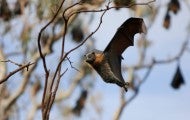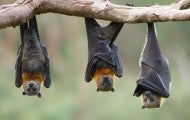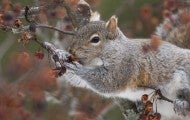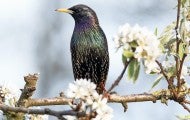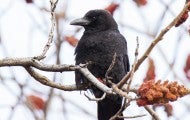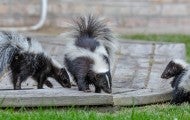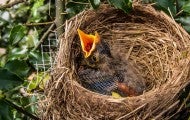Showing 8 of 8 results
Every day, more and more wildlife habitat is lost to the spread of development. Give a little back by building your own humane backyard! It doesn't matter whether you have a small apartment balcony, a townhouse with a sliver of ground, a suburban yard, a sprawling corporate property or a community...
European starlings are widespread across North America. They eat a wide variety of foods and are willing to use a wide variety of places to nest and roost. This flexible nature helps them thrive in cities and suburbs as well as on farms. They are one of only a few birds who live in otherwise barren...
